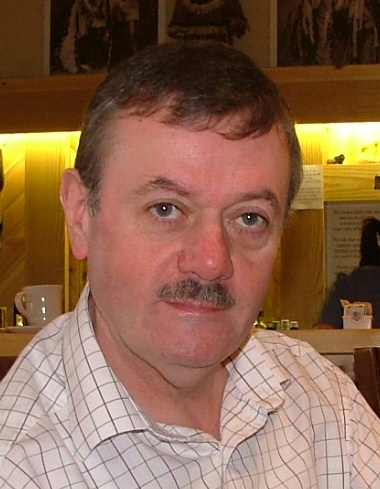The Irish Government has recently passed the harshest budget in the history of the State with further austerity promised for the next three years and perhaps for decades. Prime Minister Brian Cowen and Finance Minister Brian Lenihan have steered Ireland from the booming prosperity of a Celtic Tiger to a ruined shell of a country where unemployment, poverty, emigration, and despair are proceeding to destroy a once proud, industrious people.
Cowen and Lenihan also bear the ignominy of having brought in the International Monetary Fund who, along with EU banksters, are now dictating Irish fiscal policy. The IMF has long had a vulturish reputation for plundering weaker countries by stripping the flesh of its victims down to the bare bones. This repulsive scavenger is well known for promoting austerity and misery, grabbing national assets for its bankster and corporate friends, and leaving the skeleton of a country's economy in its wake. The first piece of offal to be plucked from the Irish carcass by this opportunistic carrion eater was the nation's 20 billion euro pension fund, the life savings of working people.As a result of Ireland's dramatic reversal of fortune the names of Brian Cowen and Brian Lenihan are now being reviled as the villains who inflicted horrendous financial disaster upon the Irish people and forced the enslavement of future generations to a criminal cadre of International Banksters.
The words 'treason', 'traitors', and 'treachery' are being increasingly used not only by ordinary citizens but also by certain politicians, economists, business leaders, and celebrities. 'Economic treason' was a term used by the leader of the Labour Party to describe Cowen and Lenihan's blanket guarantee to the banks. And, incredibly, even the country's ostensibly non-partisan police association, the GRA, accused the government of 'treachery' and denounced it as a 'government of national sabotage'.
In Ireland, the names of Cowen and Lenihan now evoke the same revulsion as that reserved for Dermot MacMurrough, a 12th century King of Leinster who has been loathed for over 8 centuries as the man who brought the first English invaders to Ireland. In 1167, after a dispute with other Irish kings which led to his forced exile, MacMurrough persuaded an English army under the command of the Earl of Pembroke, known as 'Strongbow', to invade Ireland and help him take his kingdom back.
MacMurrough died 3 years later and Strongbow declared himself the King of Leinster. Thus began the beginning of a British military occupation that would last for over 800 years and cause countless thousands of Irish deaths and condemn many generations of Irish men and women to utter misery, slavery, famine, and financial and religious tyranny. It is not easy for anyone to incite more odium in the hearts of the Irish people than that of the back-stabber Dermot MacMurrough.
And yet Brian Cowen and Brian Lenihan are reviled with the same detestation as that accorded the traitorous 12th century King of Leinster.
What did Cowen and Lenihan do to earn such public loathing?
On September 29th, 2008, a momentous event occurred. That evening, four of the most senior executives of Ireland's two largest high street banks, Dermot Gleeson and Eugene Sheehy of Allied Irish Bank (AIB) and Brian Goggin and Richard Burrows of Bank of Ireland (BOI), called to Government Buildings for a hastily convened meeting with the Prime Minister, Brian Cowen, and the Minister for Finance, Brian Lenihan. Also present was the Irish Attorney-General, Paul Gallagher.
The banksters were frantic. As the property bubble was beginning to burst, their main rival, Anglo Irish Bank, was in serious trouble and the huge loss of liquidity could bring down the country's entire financial system. Like Anglo Irish, AIB and BOI also had massive exposure to the developers and all were in danger of imminent collapse. The banksters implored the Government to do something, immediately, before the money markets opened the following morning.
Having received such stark news from the banksters, Cowen and Lenihan knew they had to move quickly and decisively. They would have to act, and be seen to act, without bias and without favouring any special interest groups. Their first duty was to ensure the welfare of the nation as a whole and to safeguard the financial interests of all the Irish people.
But in this they failed utterly. One special interest group, the banksters, prevailed spectacularly over the interests of the Irish people. How did the banksters manage to wield such inordinate influence over crucial governmental policy?
A key disturbing fact about this meeting was never commented upon in the mainstream media. On the government side of the table sat Paul Gallagher, the Attorney-General, legal adviser to the Irish Government. On the banksters' side of the table sat Dermot Gleeson, the AIB chairman and himself a former Irish Attorney-General. But, apart from both men holding the senior law office of the land, a more sinister connection between them remained undisclosed. They were both Bilderbergers.
For those who haven't heard of the Bilderbergers, they are a brotherhood of unelected international banksters, corporatists, politicians, and others who meet secretly every year to formulate and manipulate world policy in finance, economics, trade, and any other area that they can control for their own selfish, globalist interests.
It may well be that the presence of the two Bilderbergers, Gleeson and Gallagher, was just a coincidence but, considering such incredibly high stakes, it can be argued that Gallagher's attendance as Attorney-General at such a crucial meeting generated a monumental conflict of interest. His Bilderberger connection clearly compromised him as legal adviser to the Irish Government, especially when his Bilderberger pal, Gleeson, was about to be on the receiving end of a whopping government bailout.
(Note: You can view every article as one long page if you sign up as an Advocate Member, or higher).





